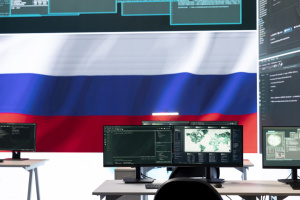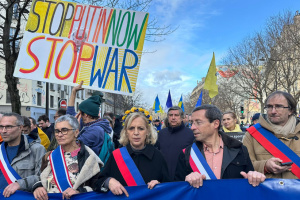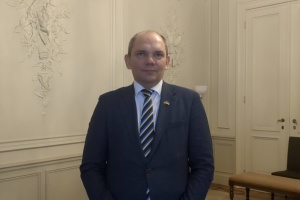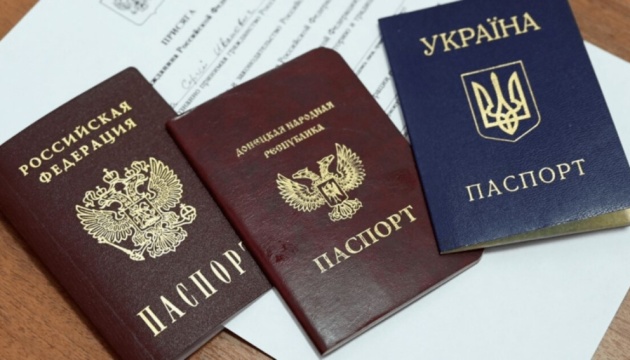
Threats of forcible naturalization of residents in Russian-occupied regions
Russians distribute passports most actively in the south of Ukraine — in Kherson and Zaporizhia regions. Taking advantage of the vulnerable position of Ukrainian citizens, the enemy induces them to apply for Russian citizenship through a facilitated procedure, while seizing their valid Ukrainian passports.
Why is Russia distributing passports to Ukrainians?
- The Kremlin is trying to strengthen its future negotiating positions and legitimize further armed aggression against Ukraine with the need to “protect Russian citizens”;
- Under the pretext of naturalization, the Russians collect personal data of Ukrainian citizens, forming an “electoral base” for holding pseudo-referendums based on the Crimea or Donbas scenario;
- The Kremlin exploits the population of the occupied territories as a resource to replenish the ranks of its army and colonize sparsely populated and depressed regions of the Russian Federation. The disproportionately large share in the Russian army of servicemen from remote areas and the deportation of Ukrainians deep into Russia’s vasts indicate that the Putin regime seeks to change the ethnic composition of Russia by increasing the share of the Slavic population.
What is Russia violating by forcibly issuing passports?
The Regulation on the Laws and Customs of War on Land, which is an appendix to the Fourth Hague Convention of 1907, expressly prohibits forcing the population of occupied territories to swear allegiance to the occupier. This applies both to the military oath and to change of citizenship.
What risks does it bear?
- Issuing passports to the population is directed against Ukrainian sovereignty, being part of preparations for the annexation of captured territories;
- Russian passport, i.e. Russian citizenship, creates grounds for mobilization into the ranks of the Russian army where draftees will be used as “cannon fodder” in the war against Ukraine (a clear example is the residents of Russia themselves);
- The Kremlin can forcibly resettle newly minted “Russian citizens” under the guise of evacuation to Siberia, the Trans-Urals, Far East, and other depressed regions;
- Passports issued under a simplified procedure do not make residents of the occupied territories full citizens of Russia. These documents even look different from regular Russian passports. Passports issued in Kherson region will not be recognized anywhere the world, just like the Russian passports of the residents of Crimea. This is not to mention the general toxicity of Russian citizenship under modern conditions.
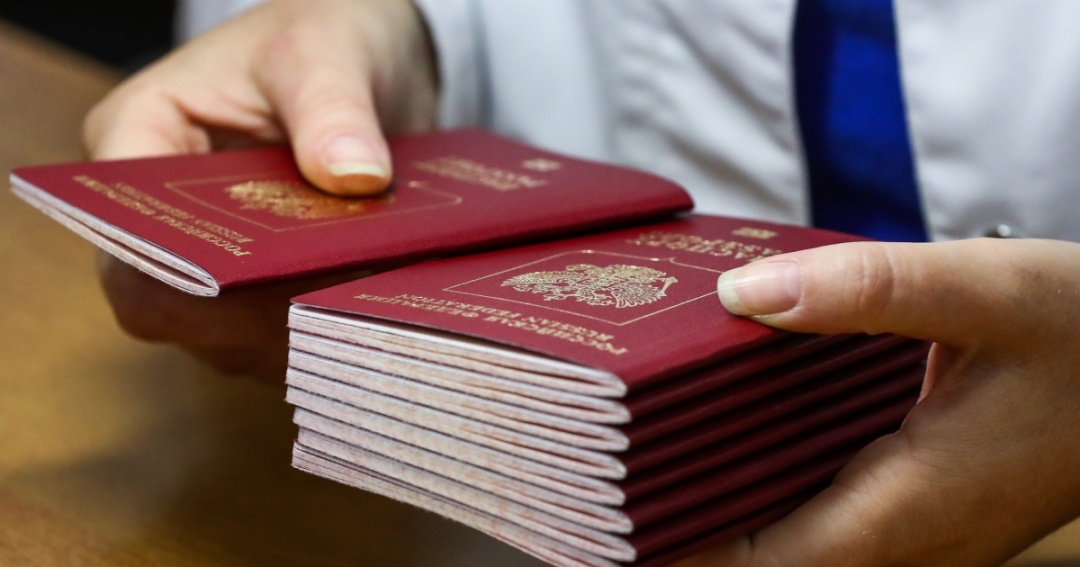
How far have the Russians advanced in this regard?
Forcible issuance of passports on Ukraine’s occupied territories started back in 2014: by federal law, all citizens of Ukraine and stateless persons who resided in Crimea were announced citizens of Russia.
In April 2019, Vladimir Putin issued a decree facilitating the granting of Russian citizenship to holders of “passports” of the “DPR” and “LPR.” In July of the same year, this order was extended to all residents of Donetsk and Luhansk regions, and in 2022 — to all newly occupied territories.
About 700,000 Russian passports were issued in the occupied regions of Donetsk and Luhansk regions over three years. Today, the occupiers issue their documents in the Donetsk, Luhansk, Kherson, Zaporizhia and Kharkiv regons. There is no reliable information about the number of citizens who obtained such “passports” but it appears the occupiers have not seen much success. In order to speed up the process, the Russians provoke a humanitarian crisis in the occupied territories, and then provide a one-time payment of RUB 10,000 to anyone obtaining a Russian passport. In addition, they make sure to make people’s lives as difficult as possible as long as they don’t have the “right” ID.
How will Ukraine respond to the actions of the Russian invaders?
Ukraine does not recognize the forced automatic acquisition of Russian citizenship by residents of temporarily occupied territories. Forcible issuance of passports is not grounds to lose Ukrainian citizenship.
Ukraine is not going to prosecute citizens who were forced to obtain a Russian passport. The government understands that in the conditions of occupation, the ability to receive medical care, retain property, get pensions and social benefits depends on such documents. There are known cases where a Russian passport was a prerequisite for residents to receive humanitarian aid.
At the same time, officials, law enforcers, judges, and other citizens who voluntarily obtain Russian citizenship for the purpose of working for the occupation administration and pursuing other forms of cooperation with the enemy will be held accountable. The Criminal Code of Ukraine provides punishment for collaborationism, treason, and other crimes against the state sovereignty and territorial integrity of Ukraine.
Ukraine’s authorities recommend that the civilian population leave the occupied territories. They should keep in mind that the occupation is temporary, and that the Ukrainian Army will liberate territories captured by the enemy.
Center for Strategic Communication and Information Security

